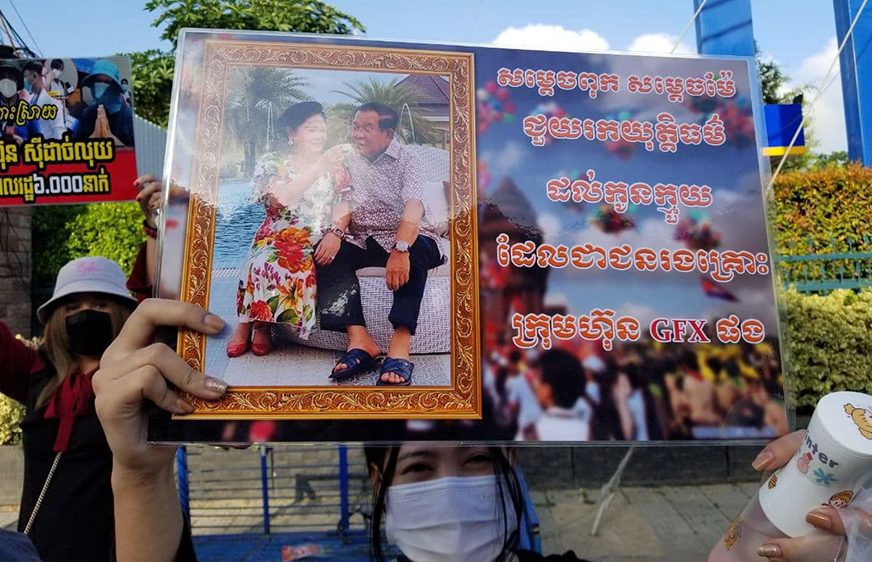More than 400 investors in GoldFX — a troubled investment firm linked to ruling party scions — last week accepted a deal to recover 30% of the money they lost, a company lawyer said.
Ty Kimsrean, GoldFX’s lawyer, told VOD on Thursday that more than 400 investors had accepted the deal, and the compensation was provided on Thursday and Friday last week and Monday.
She said the company had provided 30% of money lost — the same as it had already been offering for some time. She added that there were still some people who had not accepted, and they could contact the Securities and Exchange Regulator of Cambodia. A complaint to the regulator had now been withdrawn, Kimsrean said.
Sith Sivitha, an investor in GoldFX, said he had abandoned the protest and unhappily accepted the compensation of 30%.
He said he had taken the compensation since he had no confidence that authorities would intervene to find a better solution, and he had no hope of winning a dispute against the company because the company’s leaders were the family of powerful officials.
“We accepted because we felt hopeless about the legal means, and we filed a complaint to authorities but they didn’t care much about us.”
The now-defunct GoldFX website previously advertised that chairwoman Ke Suonsophy “is the spouse of His Excellency Sar Sokha, A Member of Parliament,” and managing director Sar Channet is the “wife of very successful businessman Mr. Ly Sopheark (Vice President of LY Hour Group).”
Suonsophy is the daughter of Deputy Prime Minister Ke Kim Yan, a military general, while her husband Sokha is the son of Deputy Prime Minister Sar Kheng, the interior minister. Channet is a niece of Interior Minister Kheng.
A financial expert previously questioned the company’s viability, saying consistent returns from foreign exchange trading was implausible. “It had the hallmarks of a ponzi scheme,” the expert, Mekong Strategic Partners founder Stephen Higgins, said last year.
Prime ministerial assistant Duong Dara said on Thursday that he had helped in negotiations early in the dispute, and investors had been pushing for more than 30% in compensation. But he was no longer involved, he said.













